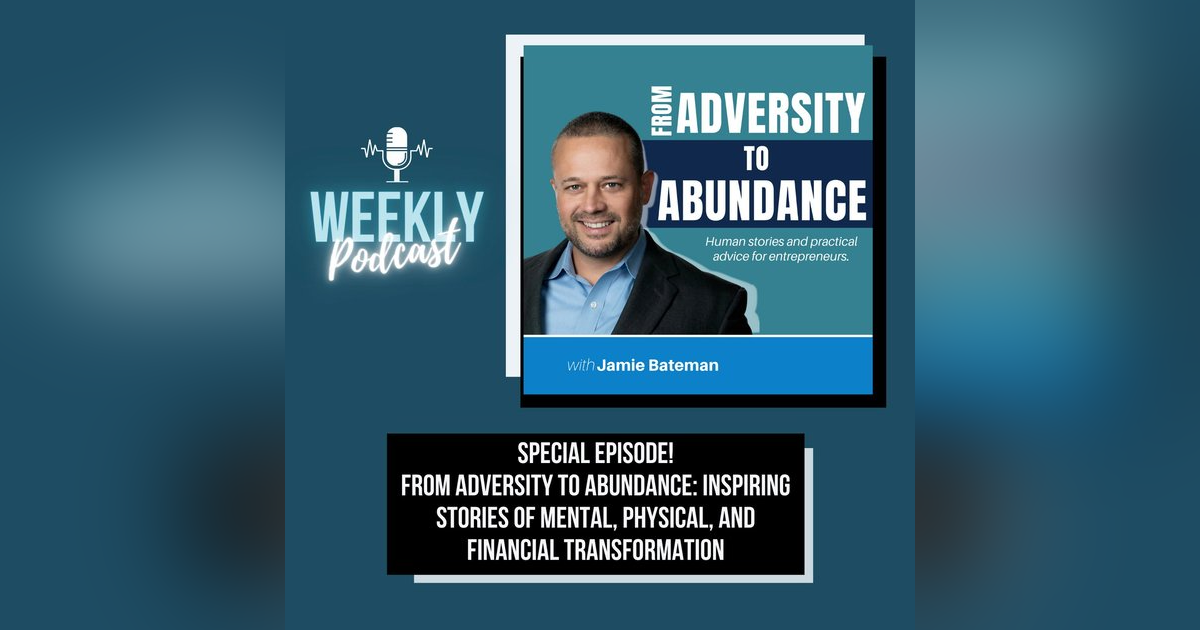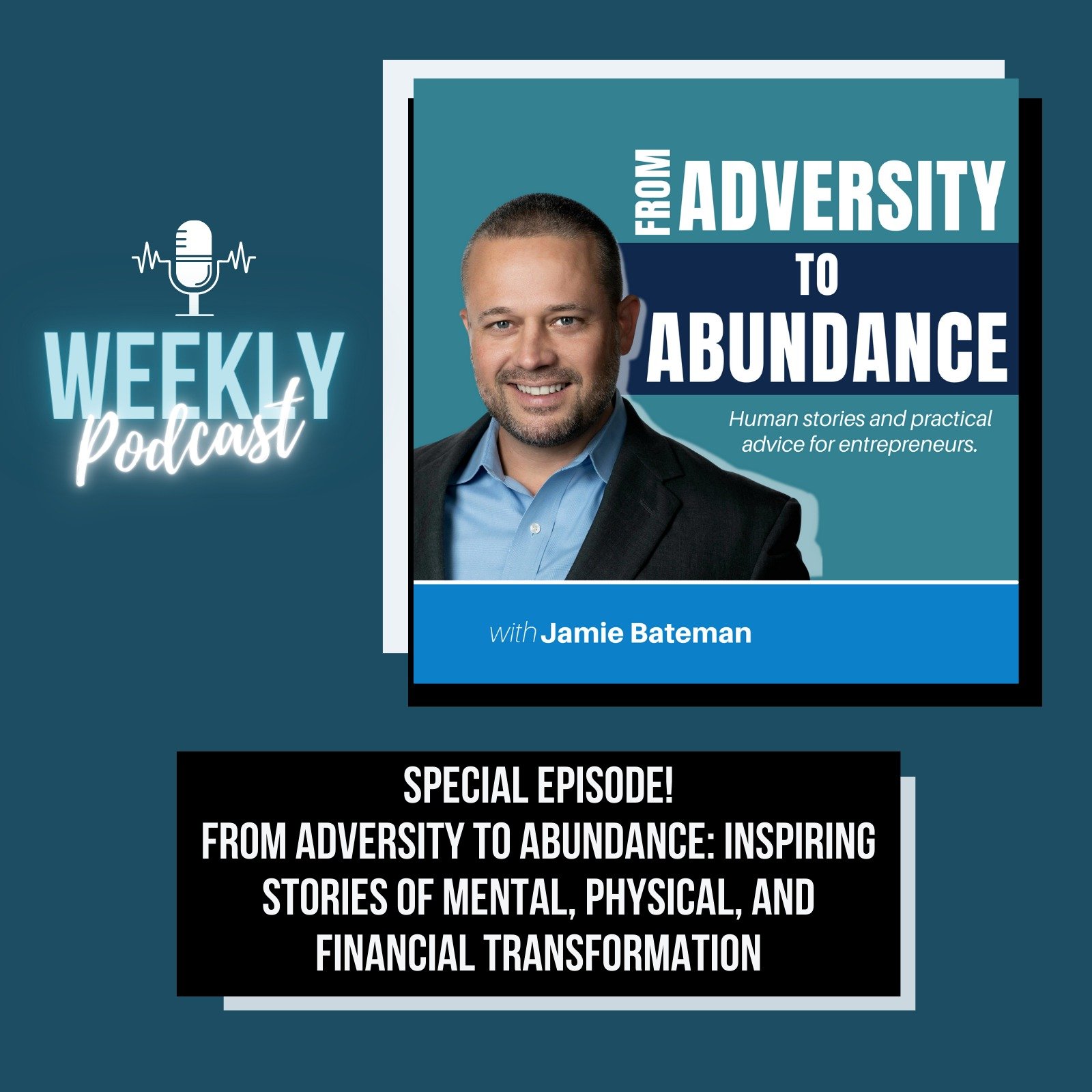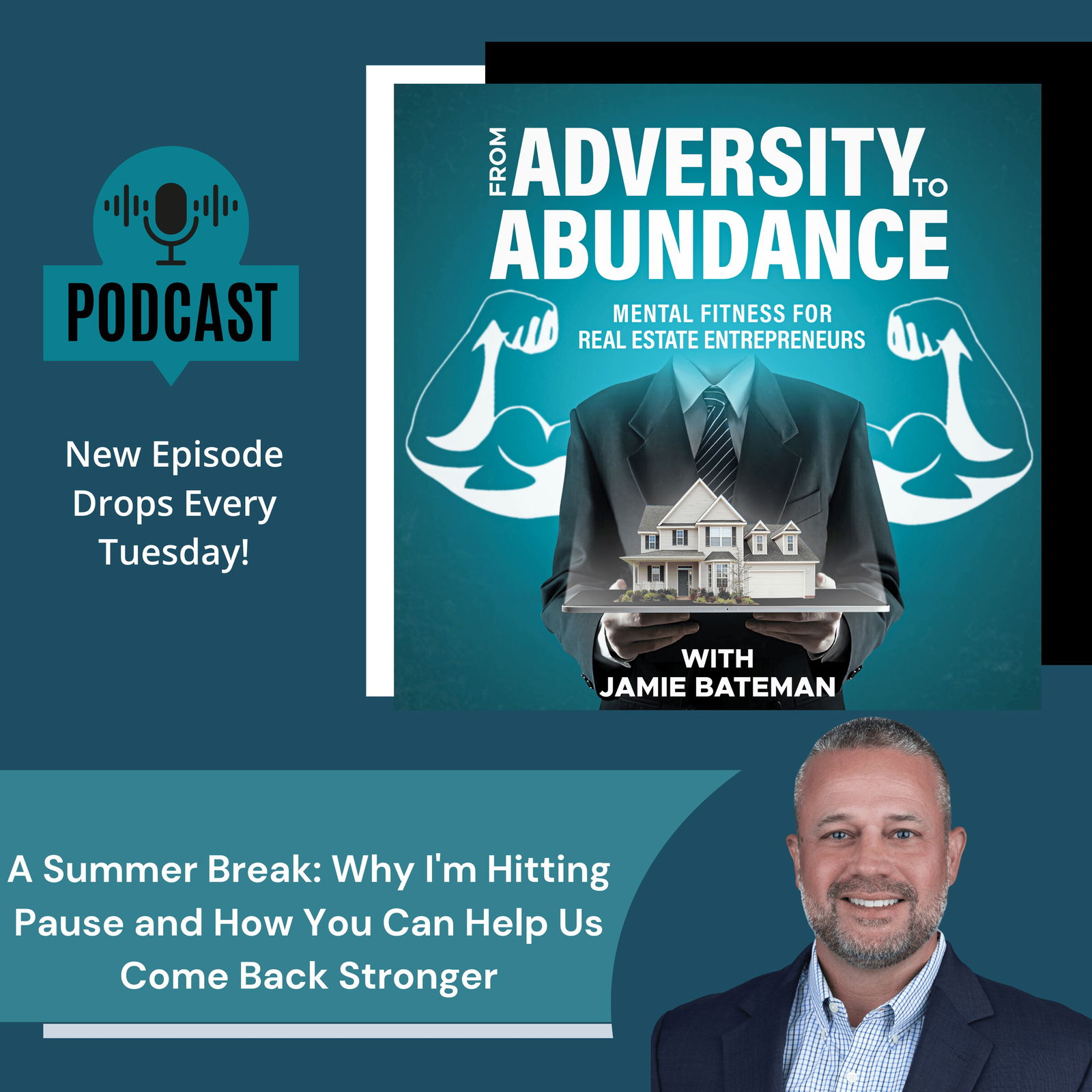Special Episode! From Adversity to Abundance: Inspiring Stories of Mental, Physical, and Financial Transformation


Book launch! October 2, 2023! Pre-order here: https://www.adversity2abundance.com/store/
Host Jamie Bateman gives us a behind-the-scenes look into his new book, From Adversity to Abundance: Inspiring Stories of Mental, Physical, and Financial Transformation . Jamie walks us through the impactful takeaways from the 11 specials guests’ stories featured in his new book.
Some of the takeaways are:
· Adversity can be a catalyst for growth
· Prioritizing community development
· Continuous learning and adaptability
· Change is a holistic process
· The importance of self-Investment and taking action
· The power of mentorship and community
· Growth through Adversity
· Overcoming the scarcity Mindset
· The importance of vision and balance between passion and challenge
· Redemption and gratitude
· Financial freedom facilitates intentional living
· The power of resilience and adaptability
· Focusing on what you can control
Chapters in the book:
· The Events That Shape a Character -- Fuquan Bilal
· A Holistic Transformation – Matt Izzo
· Strengthening Your Voice – Maricela Soberanes
· Finding the Silver Lining in Loss – Chris Larsen
· Seeing the Blue Skies – Dan Haberkost
· Discovering the Greater Good in Difficult Times -- Beth Boisseau-Coots
· It’s Never Too Late – Mark Owens
· Uncovering Counter-Advantages to Your Difficulties – Matt Fore
· Consistent, Persistent Action: The Formula for Success – David Dodge
· Regaining His Hustle and Enjoying the Ride – Brent Bowers
· Learning to Focus on What You Can Control – Emma Powell
Haven Financial:
https://www.myfinancialhaven.com/jamiebateman/
ATTENTION:
Unlock the secrets to a transformative life with “From Adversity to Abundance: Inspiring stories of Mental, Physical and Financial Transformation”. Buy your copy now and embark on a journey from challenges to triumphs!
AMAZON: https://www.amazon.com/dp/B0CGTWJY1D?ref_=pe_3052080_397514860
Connect with us
WEBSITE: https://www.adversity2abundance.com
Leave us a rating or review: https://www.adversity2abundance.com/reviews/new/ or here
Got comments, feedback or suggestions? We’d love to hear it! https://www.adversity2abundance.com/contact/
Follow From Adversity to Abundance Podcast
FACEBOOK: https://www.facebook.com/profile.php?id=100089126144055
INSTAGRAM: https://www.instagram.com/adversitytoabundancepodcast/
LINKEDIN: https://www.linkedin.com/company/89949391/admin/feed/posts/
YOUTUBE: https://www.youtube.com/@FromAdversity2AbundancePodcast
Connect with Jamie
BOOK: From Adversity to Abundance: Inspiring Stories of Mental, Physical, and Financial Transformation
LINKEDIN: https://www.linkedin.com/in/jamie-bateman-5359a811/
TWITTER: https://twitter.com/batemanjames





